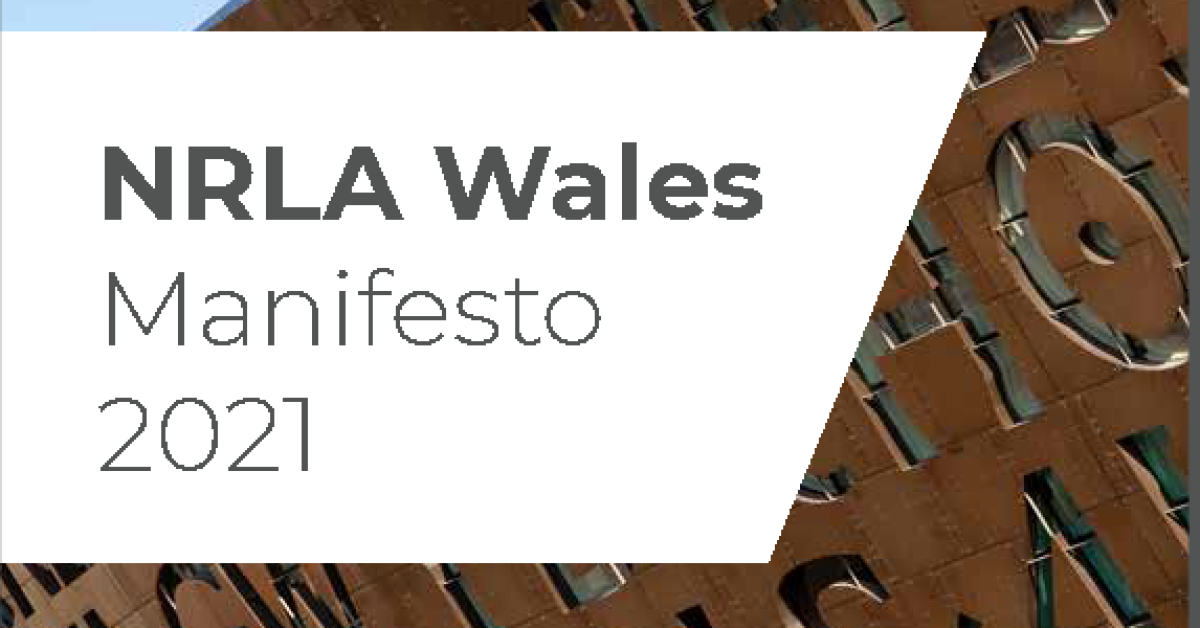Working with the Senedd
Introduction
The NRLA Wales team is based in Cardiff and represents the interests of private rented sector (PRS) landlords by maintaining good working relationships with the Welsh Government, Members of the Senedd, councillors, Rent Smart Wales, and other stakeholders in the housing sector. We also speak directly to landlords by facilitating select landlord forums.
In using its powers, the Welsh Parliament has passed three signifcant pieces of legislation governing the PRS in the last few years:
- The requirement to register and/or licence was brought in by the Housing (Wales) Act 2014;
- Sweeping reform of the tenancy regime came into force on December 01 2022 as a result of the Renting Homes Act 2016;
- Tenant fees were also banned in 2019.
Currently the Welsh Government is focused on implementing the secondary legislation required to support the introduction of Renting Homes Wales. As part of the co-operative agreement between Plaid and Labour, rent controls is also on the agenda in Wales. Though this is at an early stage, the NRLA is strongly opposed to rent controls and is making the case that rent controls will decrease supply in the sector, making it harder for tenants to find homes to live in.
NRLA Wales is here at every stage to ensure policymakers are aware of the issues affecting landlords and that their interests are heard as we aim to make the PRS work for both tenants and landlords.
Rent controls in Wales
The Welsh Government’s consultation on fair rents and right to adequate housing closed on the 15th September. The NRLA responded to the consultation as well as producing a toolkit to assist members in their own responses.
Fair rents, or rent controls, were the element of the consultation of particular concern to landlords. Especially giving they are already facing several challenges associated with rising costs of running their rental business and still grappling with the changes brought about by the Renting Homes (Wales) Act 2016.
In our response, the NRLA addressed the following:
- We firmly opposed introducing rent controls. We believe that rent controls do more harm than good, reducing the supply of homes that are available to rent. This is of particular concern given the existing supply crisis that the sector faces, which the Welsh government should not seek to exacerbate.
- Far from helping those on the lowest income, rent controls lead to higher rent increases as landlords feel compelled to raise rent annually to mitigate risk. Normally it is rare for a landlord to increase rents during a tenancy.
- Provided further examples of studies and recent market evidence to demonstrate the unintended consequences of rent controls. One such example being the rent increases seen in Scotland as a result of similar policies.
- If there was ever a time to introduce rent controls, it certainly should not be whilst landlords are still coming to terms with substantial changes brought in by the Renting Homes (Wales) Act 2016 which has brought with it significant time and financial costs.
- Future policymaking in Wales should be backed by accurate data. As Wales becomes more and more distinct from England in its regulatory regime, there is a clear need for a Welsh Housing Survey to underpin the decisions that are taken about how the sector operates.
We will now have to wait and see what outcomes are brought forward as a result of the consultation once the Welsh Government has had time to examine all of the responses. We will keep our members up to date with any further progress.
State of the PRS
Over the last decade, the private rented sector (PRS) in Wales has become increasingly distinct from that in England. The introduction of Rent Smart Wales in 2015 was expected to be the start of radical reforms to the way the private rented sector works in Wales. This was not the case, however. The protracted implementation of the Renting Homes (Wales) Act 2016 meant that regulatory development in Wales stalled, with England and Scotland pressing ahead with significant reforms.
As of December 2022, some six years later, the Renting Homes (Wales) Act is now in force. This Act is intended to replace virtually all existing tenancies with the new occupation contracts, bringing with them significantly different regulatory requirements. The Welsh Government also intends to continue these wide ranging and substantial reforms by consulting on potential options for rent controls in the future.
Introducing an entirely new framework for tenancies carries with it substantial risk that landlords will choose to exit the market, and the potential damage rent controls can do is well documented. With that in mind, it is crucial that further policy developments are based on accurate, and Wales-specific data.
Despite comprehensive modifications to housing and planning law, and the fact that the Welsh PRS has grown at a substantial rate over the past decade, the availability of comprehensive, up-to-date, and official data on who lives in the sector, its exact size, and the type of properties in it remains limited.
Much of the data referred to in discussions about the PRS is also based on English statistics and experiences. The English housing and private landlord surveys are regularly cited when discussing property standards, tenure length, levels of supply, possession experiences and more. No such equivalents exist in Wales and, post-implementation of the Renting Homes (Wales) Act, it is not clear how, or even if, these statistics are
useful for the new tenancy regime or the specific context of housing in Wales.
This State of the Private Rented Sector report draws on data from several sources to try to establish what the PRS in Wales looks like now and makes some key recommendations for the future of policy development in Wales.
Key recommendations
- The Government should establish a Welsh Housing Survey or collect and regularly publish the equivalent data for Wales. The lack of available evidence around housing in Wales makes policy development challenging and increases the likelihood of poor outcomes for tenants and landlords.
- The Welsh Government should not commit to introducing its fair rents policy before a comprehensive assessment of the size and make-up of the PRS and its inhabitants has been conducted and published. Without a substantial evidence base, any move towards introducing “fair rents” or some other form of rent control is a leap into the unknown and could result in unintended consequences for current and future tenants, restricting supply and pushing up rents higher than they would have been normally.
- The Welsh Government should encourage the UK Government to undertake a full review of taxes affecting the private rented sector. Such a review would form a foundation from which to mitigate the detrimental consequences of a loss of investment on current and future tenants, tax revenue and expenditure on homelessness prevention. Additionally, Welsh Government should continue to press for Local Housing Allowance rates to be unfrozen and realigned to at least the 30th percentile of local market rents to improve affordability amidst a wider shortage of housing.
- The Welsh Government should undertake a full review of the successes and failures of the Renting Homes (Wales) Act. Given the increasing number of possession claims in Wales, this review must also focus on how the act has affected the supply of rented properties in Wales.
Renting Homes Wales
Now that the Renting Homes (Wales) Act is now in force, landlords will now see significant changes to the way they manage their properties. These include:
- changes to the type of possession notice required and the notice periods given;
- changes to what happens if tenants serve notice;
- the introduction of new fitness for human habitation requirements;
- the introduction of retaliatory eviction protection;
- the abolition of the assured shorthold tenancy and replaces it with new occupation contracts;
- the introduction of an abandonment procedure, allowing landlords to take back possession without going to court if the tenant has left without notice;
- requirements to serve a variety of new documents and prescribed forms;
- the legal requirement to introduce a number of fundamental terms into all contracts in Wales.
These rules and requirements are set out in the written contract that landlords must provide to their occupants under Renting Homes Wales so, for new contracts starting on or after December 1 2022 all parties are clear about what they must do.
What is the policy team doing around Renting Homes Wales?
The policy team has produced a number of guides and resources to help landlords comply with Renting Homes Wales, including standard occupation contracts, guidance on converting contracts and checklists for ensuring the property meets the new requirements.
We will continue to update our members as the new legislation has passed and been implemented supporting our members enquiries through our advice line.
Preparing for Renting Homes Wales
Renting Homes Wales checklist
Converting tenancies to occupation contracts
NRLA Shadow White Paper
Back in March, the NRLA set out is vision of a fairer, more inclusive PRS in Wales.
The Shadow White Paper, entitled “The Future of Private Renting in Wales”, sets out the NRLA’s proposals including an analysis of why the introduction of rent controls would have a destructive impact on the Welsh PRS.
Along with rejecting rent controls, the paper made a number of other recommendations. These include:
-
improving the LHA rates and boosting supply to meet demand
-
a commitment to allowing the Renting Homes (Wales) Act to be properly and fully implemented before embarking on a further round of changes to the sector;
-
the provision of more financial support to landlords to help with energy efficiency improvements;
-
a final audit on the performance of Rent Smart Wales since its introduction;
-
an exemption from the Land Transaction Levy where a landlord is bringing a new property into the PRS, boosting the supply of properties for long term rent;
-
a Welsh housing Survey to improve data on housing in wales.
Since its publication, the NRLA has held a number of meetings with members of the Senedd and other campaign groups to make the case in person and find areas where we can work together to make these sensible proposals a reality.
Supporting the White Paper, the NRLA commissioned an independent report by Capital Economics which suggests that Wales would need an average of just under 9,000 new private rented properties to meet housing targets. Despite this increasing demand for homes, only 11 per cent of landlords polled by NRLA said they planned to increase the number of properties they let out. Far more, 37 per cent, plan to cut the number they rent out.
Our White Paper sets out what must be done in Wales to build a fairer, more inclusive PRS for both tenants and landlords and the damage that outmoded notions of rent control could have on the market.
Ultimately, with affordability and supply issues continuing to dog the Welsh private rented sector, rent controls would exacerbate these ongoing problems and fail to provide a solution fit for the twenty-first century.
Rather than focus on rents, the Welsh Government must target costs, making the provision of homes more affordable.
A good start would be removing the controversial 4% Land Transaction Levy on the purchase of additional homes which disincentivises investment in much needed homes.
Rent Smart Wales: The Accountability Gap
The NRLA published a report in January 2021, Rent Smart Wales: The Accountability Gap, to review RSW’s performance as the body marks its fifth anniversary. The main conclusions of the report include:
- RSW has an accountability deficit and lacks transparency;
- There is no regular evaluation of RSW, hampering improvements to the regime;
- The absence of a central, guiding strategy for the private rented sector (PRS) from the Welsh Government has contributed to RSW’s shortcomings;
- RSW has not engaged well enough with landlords, tenants, or local authorities;
- Landlords are paying in more than they get out of RSW; and
- In meeting its objectives, RSW’s record has been far from stellar despite meeting a number of its targets for participation.
The report, marking the most comprehensive assessment of the powerful quango, to date also makes recommendations to improve RSW’s performance and stakeholders’ confidence in it:
- There should be a public annual report into RSW’s performance and direct scrutiny by the Senedd every year;
- Operational and political decisions should be clearly identified for reasons of accountability;
- As was recommended by a Senedd Committee in 2011, an encompassing PRS strategy from the Welsh Government is needed, potentially setting out a wider role for RSW;
- The unanticipated surplus, numbering in the millions, generated by RSW through law abiding landlords should be used to provide discounts or free training for landlords or more effectively deployed into improving enforcement activities and tackling criminal landlords.
Share your story
As part of our ongoing policy work, we rely on our member feedback to shape our policy direction and to provide case studies to strengthen the submissions we make on behalf of our members.
We are also interested in identifying and raising the issues that landlords face in implementing the Renting Homes Wales Act. This will help to shape our Wales-specific resources, as well as helping us highlight these issues to the Welsh government.
If you would like to share your story then please get in touch with the campaigns team via the share your story button below.
Contacting your MS
While the NRLA will continue to campaign on behalf of our members, as your local representative they will give your voice more weight than any national campaign. If you can spare time to write to them on the issues facing landlords in Wales, it can make a real difference.
Contact details for Members of the Senedd
Tips for writing content for your MS
Be personal - By linking your concerns to real examples you will engage the reader and help them to sympathise with your concerns.
Focus on the local - Your MS is more likely to support landlord concerns if they understand how it impacts on their area.
Relate your concerns to your tenants - The more people that are helped by supporting landlords, the greater the chance the MS will be convinced of your argument.
Be succinct - Try to limit yourself to no more than two pages of A4. MPs receive numerous letters every week. By keeping it short you will stand out from the rest, increasing the chance they will process all the information you give them.
Provide solutions - A letter to your MS is not just a chance to educate them about an issue, it's a chance to propose solutions as well. If you have a sensible plan of action, laid out in a clear way, they are more likely to support it.
Latest news
The latest news on the private rented sector in Wales:
Rent Smart Wales fails accountability and transparency tests
An 'accountability deficit' exists within Rent Smart Wales, the nation's registration and licensing authority for the private rented sector, according to a report published by the NRLA today.
Wales enforces "winter truce"
The Welsh Government recently laid regulations to enforce the winter truce that bailiffs and High Court Enforcement Officers (HCEO) have been asked to follow over the Christmas period, from 11 December 2020 to 11 January 2021. In this blog NRLA Wales policy officer Calum Davies explains what landlords in Wales need to know.
NRLA Wales launches 2021 manifesto
This week NRLA Wales launched its manifesto ahead of the Welsh Parliament election next year. In this blog NRLA Chief Executive Ben Beadle writes about the NRLA's six key calls for the parties standing in the 2021 Welsh Parliament elections.
Time for a fairer private rented sector, say Welsh landlords
The National Residential Landlords Association (NRLA) Wales has released its manifesto for the forthcoming election, explaining that only when the private rented sector (PRS) is regarded as part of the solution to the housing crisis can landlords and tenants prosper.
BLOG: Senedd Committee considers amendments for possession reform Bill
Wales' Equality, Local Government, and Communities Committee considered amendments put forward to the Renting Homes (Amendment) Bill last week. The purpose of the Bill is to give private tenants in Wales 12-months security of tenure. In this blog NRLA policy officer Calum Davies writes about the amendments.






